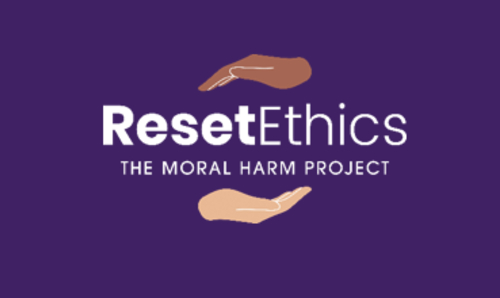
Reset Ethics follow-on work: Moral harm project
Working with hospital-based staff wellbeing professionals to address moral distress and moral injury amongst healthcare staff.

The project, ‘Working with hospital-based staff wellbeing professional to address moral distress and moral injury amongst healthcare staff’ (The Reset: Moral Harm Project) was a one-year project funded by the UKRI Arts and Humanities Research Council (AH/Y001877/1) as a follow-on impact project to develop findings from the Reset Ethics research.
The Moral harm project ran from March 2024 to March 2025. Please visit the Resources page to see the resources produced from the project.
The Reset Ethics research found that Covid-19 infection control measures changed working practices and created barriers to the expression of care – where care is understood as embracing the interpersonal relationships between the patient (and their family) and the healthcare provider.
The moral distress and injury experienced by healthcare professionals, rather than a response to a single traumatic event, was often a response to being unable – repeatedly and over a long period of time - to practise (to offer care) in accordance with personal/professional values.
The impact funding enabled us to develop findings from the NHS Reset Ethics research with a new community – hospital wellbeing professionals. We understand ‘wellbeing professionals’ broadly, to include, for example, clinical psychologists, chaplaincy teams, counsellors, welfare teams and others whose role is to support the wellbeing of healthcare professionals.
To do this, we brought together a group of wellbeing professionals who worked together with the research team and co-created our outputs. The overarching principle of co-creation is that a collaborative approach is taken to creative problem solving, and members of the project co-creation group participated in all stages of this project.
Working collaboratively, we used collective, consensus-building discussion to explore how ethical theories and an ‘ethical lens’ might offer additional means of supporting people experiencing moral distress.
